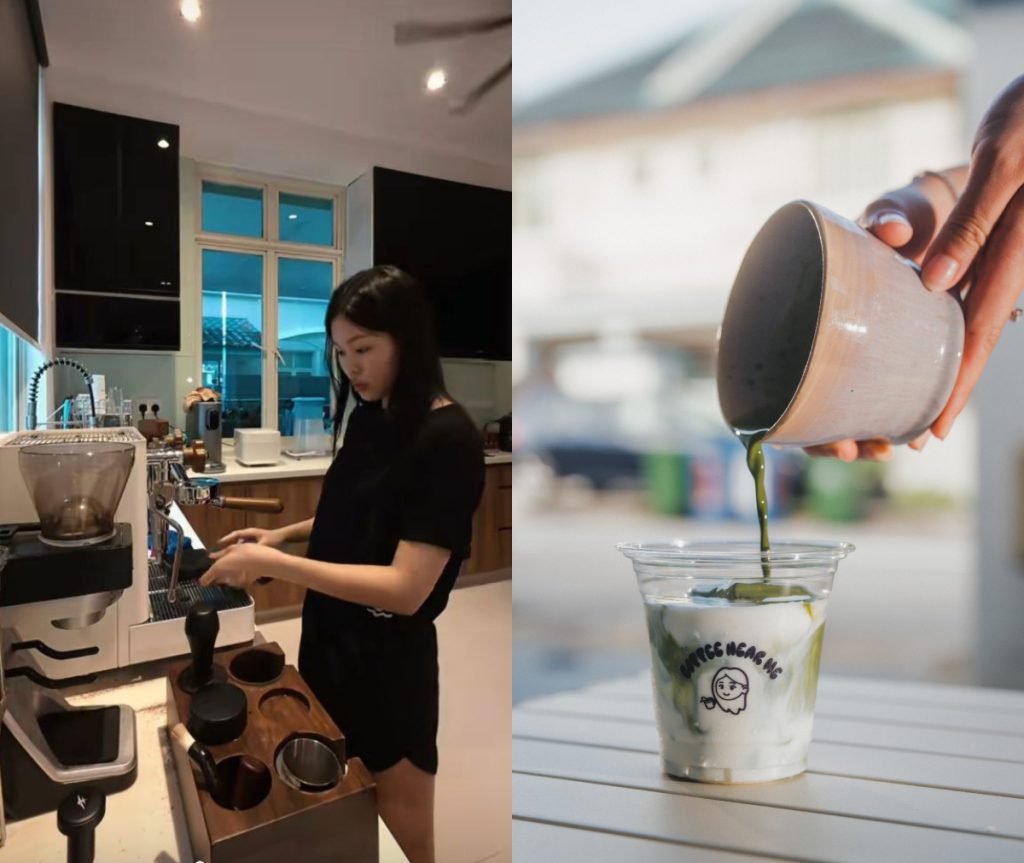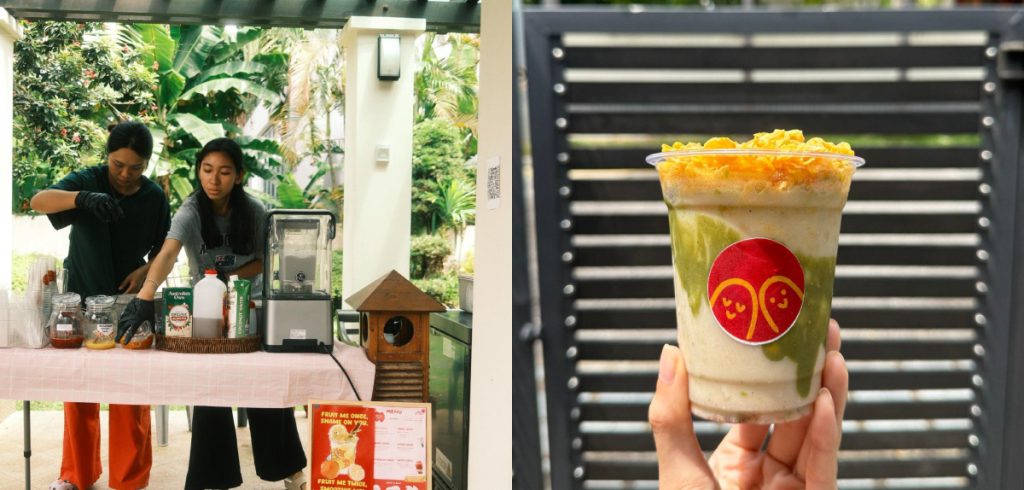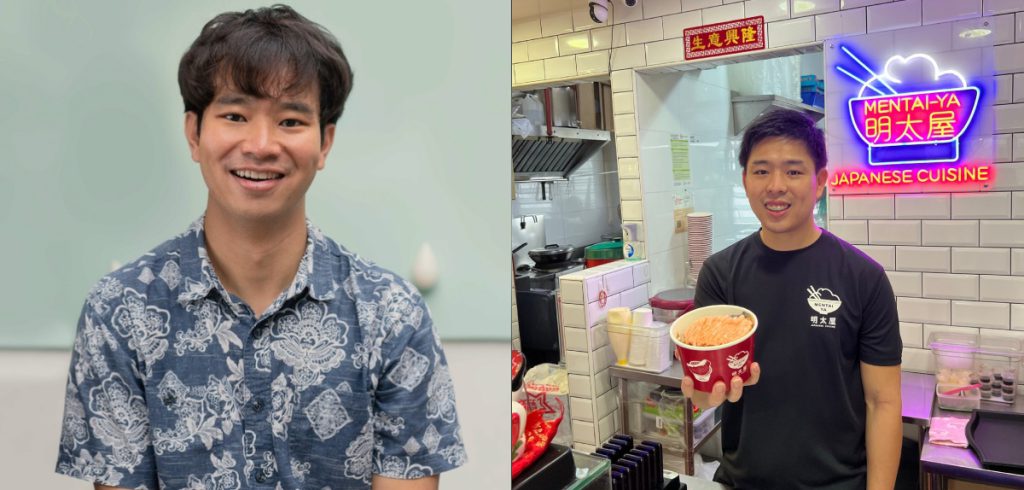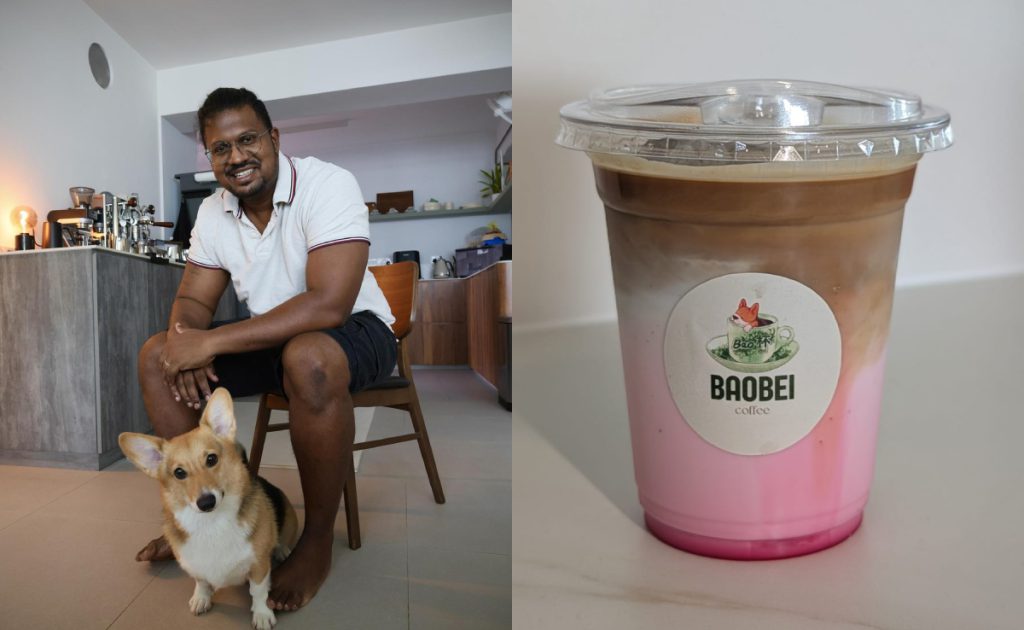
From fluffy pancakes at Fluff Stack to the Instagrammable buns of America’s Eggslut, some of the most beloved F&B names have folded under pressure in Singapore.
But while these brands have shuttered, a quiet counter-movement was brewing—right in our HDB corridors and landed homes.
Home-based cafés are flourishing, offering iced lattes and sourdough buns from dining tables and makeshift counters.
For some, it’s a revival of the community spirit—but for others, it’s a regulatory grey zone that threatens the survival of licensed establishments.
The appeal of a home cafe

As new entrants to the saturated F&B space, home-based cafes enjoy a novelty factor that draws curiosity and foot traffic, especially from younger crowds. Sonia Lim, founder of Coffee Near Me, attributes this to a revival of the “kampung” spirit in modern Singapore.
“I think it is a breath of fresh air for Singaporeans, as we are more towards the conservative side [culturally], so we rarely see people opening their house up to strangers. So naturally, out of curiosity, people would want to ‘ see see look look’,” she explained.
For Lew Su Ling and Lydia Batricia Azman of 2 Sisters’ Smoothie, early traction came from flyers and social media, with their Erewhon-inspired drinks gaining popularity through word of mouth in the neighbourhood.
“Many of our first customers were from the neighbourhood, and thanks to word of mouth, more people began to discover us and show their support,” explained Su Ling.

More than novelty, cost is a key driver. By operating from home, these café owners sidestep one of the biggest costs in the business: rent, which has been the bane of many F&B entrepreneurs as of late.
While the team behind 2 Sisters’ Smoothie did not reveal their startup costs, Sonia shared that she launched Coffee Near Me with just S$ 5,000, spending on essentials like cups, beans, and a second-hand coffee machine.
Joshua Simon of Baobei Coffee in Tampines, on the other hand, started with around S$ 6,000, allocating some of it toward branding and subscriptions such as Adobe Illustrator. Their setup is lean: personal furniture, household appliances, and basic kitchen equipment.
It’s also worth noting that all three of these home-cafe F&B entrepreneurs hold full-time jobs. These cafes are passion projects—side hustles made viable by low risk and flexible hours.
In an era of rising costs and job insecurity, this model, where more people are working multiple jobs to sustain themselves, makes sense.
An unfair advantage?
With recognition comes scrutiny. While home cafés have garnered glowing features in mainstream media, some veterans of the F&B industry aren’t impressed.

In a strongly worded LinkedIn post, Ee Chien Chua, who previously ran F&B collective Whimsical Inc. (also the company behind well-known bar Jekyll and Hyde) for six years, recounted some of the gruelling realities of running a traditional F&B business, especially with mounting costs like rental and salaries.
Chua accused home-based café owners of “bypassing the system.” He cited high rent, licensing fees, and payroll burdens faced by traditional operators, and also alleged that the Urban Redevelopment Authority of Singapore (URA) and the Singapore Food Agency (SFA) have a “double standard” when regulating these businesses.
According to the current guidelines by the URA, SFA, and the Housing and Development Board (HDB), home-based cafes are not required to obtain a licence to operate; however, they must comply with food safety and hygiene laws and be considerate of all neighbours.
Keat Hwee Khoo, the owner of the now-closed Japanese hawker chain Mentai-Ya, adopts a calmer tone on home-based business, stating that it’s “not fair” to the people who register for SFA licenses and pay premium rental.
“But [it’s] quite risky lah, I mean if something happens, somebody gets food poisoning, the whole market [referring to home-based businesses] will crash. So it’s still a very risky part that we need to be very, very careful,” he cautioned.
Should home cafes be compared to F&B establishments?

Still, some home-based cafe owners argue that they operate in a completely different space and shouldn’t be lumped in with traditional F&B businesses.
Upon reading the LinkedIn post by Chua, Joshua Simon, the founder of Baobei Coffee, shared with Vulcan Post that he felt “extremely angry.”
He went on to explain that established restaurants and home-based cafes are two different entities altogether—they are “not even close competition,” and shouldn’t be compared.
“Yes, I can understand where your frustration comes from, you know, we don’t have licenses and stuff like that. But what gives you the factual information to tell you that we don’t have licenses of our own?”
While not legally required, Joshua shared that he voluntarily completed a food hygiene course to ensure safe practices.
Sonia, on the other hand, was visited by URA and SFA officers after a complaint. After verifying that she wasn’t selling third-party bakes or using commercial machines, Coffee Near Me was allowed to continue, with some changes, including the removal of visible signage.
Coffee Near Me declined to comment further on the LinkedIn post, and 2 Sister Smoothie has yet to respond to Vulcan Post’s follow-ups.
Can there be a middle ground?
Despite their opposing views, both camps agree: the F&B playing field needs more clarity. Singapore’s regulatory framework was not built with home cafés in mind, and as these setups grow more popular, policy will inevitably catch up.
However, as Singaporeans have often learnt, tackling issues at a policy and regulatory level is more complex than one might expect. The solution isn’t as simple as imposing more rules—over-regulating could kill the very spirit that made home cafés appealing in the first place.
“If the government sets regulations, I welcome them,” said Joshua. “But don’t destroy the kampung spirit we once had.”

While I understand the heart behind the trend, I can’t help but wonder if a few bad apples are jumping on the “revive the kampung spirit” movement to justify not setting up a proper commercial business—and, dare I say, taking the easy way out to avoid paying rent.
Intentions aside, the real question isn’t whether more regulations will be imposed on home cafes—it’s only a matter of time.
Rather, potential business owners need to seriously consider both business models and ask themselves: do they have the passion and the financial ability to sustain their F&B dreams?
Because without both, there’s a high chance it might all go up in smoke.
- Read more stories we’ve written on Singaporean businesses here.
Featured Image Credit: Baobei Coffee /2 Sister Smoothies